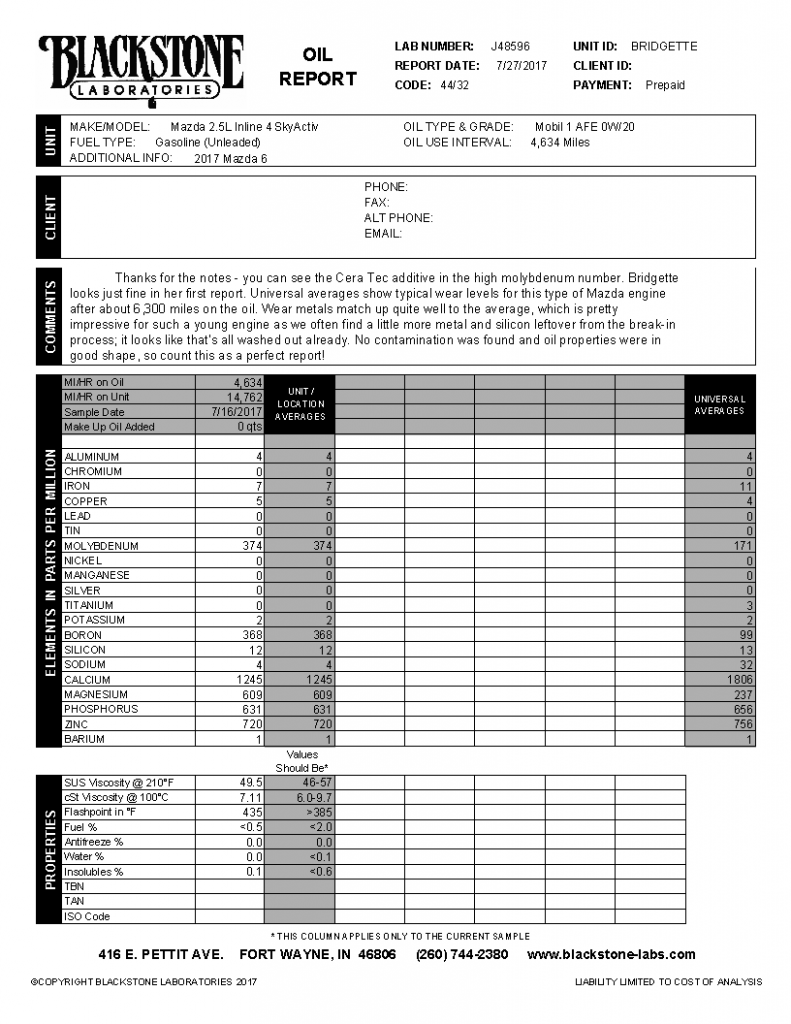But even if you're in the 120 degree heat of summer in the Arizona desert, your engine oil is still operating at approximately the same temp as it would in the 0 degree air of winter in Minnesota. It's just starting out at a higher temp and warming faster, which is actually easier on the engine, not harder.
As far as I'm concerned, Mazda has made it clear enough through their various recommendations worldwide that either 0W-20 or 5W-30 is acceptable, except in extreme cold temperatures where you need to stick with 0W-20. A reasonable person might infer that 5W-20 is also OK, outside of the extreme cold, and 5W-20 was the recommended oil for the 2.3L. 0W-30 is probably OK as well.
When it comes to motor oil, the amount of folklore being passed around has always far exceeded the amount of data. I think when somebody claims that such-n-such oil is harmful to your engine, the burden of proof is on them, especially when it's the manufacturer's recommended oil.
I'm not sure what to make of the Mobil 1 spun bearings thing. There are a lot of people who have suffered spun bearings who also happened to be using Mobil 1 oil. But then again, a lot of people who tune and race their cars use Mobil 1. For many years it was considered one of the best oils on the market, and was often the best oil you could find at your local auto parts store, so a lot of people used it. Correlation does not equal causation. And in this case, it's more likely that these people damaged their engines because they tuned them beyond the ignition control system's ability to control knock, not because they used the wrong oil.


